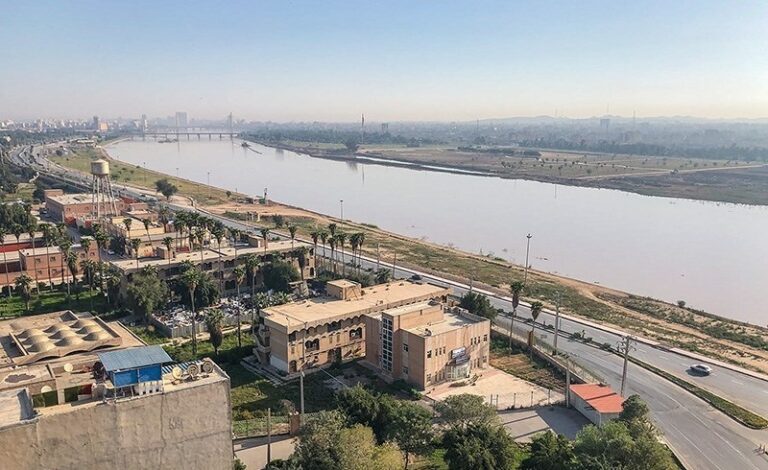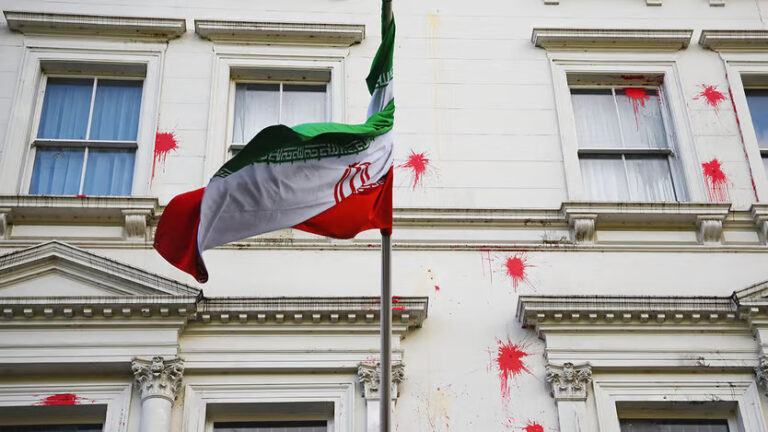Israeli and Lebanese troops exchanged fire along their shared border Tuesday in a deadly clash that killed four people. The fighting has raised the spectre of a fresh conflict in the volatile region, with Hezbollah chief Hassan Nasrallah warning that the Shiite movement would not “stand by idly” if Israeli troops attack Lebanese forces again.
A senior Israeli military officer, two Lebanese soldiers, and a Lebanese journalist were killed in the fighting, the worst violence between the two countries since the 2006 war. The incident took place just hours before Nasrallah was scheduled to deliver a much-awaited speech marking the end of the 2006 conflict.
At least one Israeli soldier and another Lebanese journalist were injured in the incident.
Addressing a huge large gathering of supporters in the Hezbollah-controlled southern suburbs of Beirut via a video link Tuesday night, Nasrallah said he had called on his followers not to act.
But, Nasrallah warned, “From now on, if the [Lebanese] army is attacked in any area where the resistance [Hezbollah] has a presence or a say, we will not stand by idly.”
Conflicting accounts of border fighting
Israel and Lebanon have provided conflicting accounts of what happened Tuesday morning along the tense border.
Lebanese military officials said the skirmish started when Israeli troops attempted to cut down a tree inside Lebanon territory. The Lebanese army then fired warning shots at them and the Israelis responded by shelling a Lebanese army position in the southern Lebanese village of Adaisseh. The Lebanese army then fired back.
In a statement released Tuesday, Lebanese President Michel Suleiman said Israeli troops had crossed the UN-drawn Blue Line boundary separating the two countries and fired on a Lebanese army checkpoint in Adeisseh.
Suleiman also denounced the fighting and said the shelling was a violation of UN resolution 1701, which ended the 2006 conflict between Israel and Hezbollah and calls for both Israel and Lebanon to respect the Blue Line.
Israeli military officials, however, said the Lebanese Army fired at Israeli forces along the country’s northern border while Israeli troops were carrying out “routine maintenance”.
“The soldiers were on routine activity in Israeli territory, in an area that lies between the Blue Line and the security fence, thus within Israeli territory,” the IDF (Israeli Defence Forces) said in a statement.
Speaking to FRANCE 24 from Paris Tuesday, Israeli government spokesman Avi Pazner said the Israeli military had informed UNIFIL, the United Nations peacekeeping force in southern Lebanon, about the patrol two days ago and described the incident as “premeditated” and a “provocation by the Lebanese army”.
‘One of our most dynamic journalists’
Tuesday’s victims included Assaf Abu Rahhal, the southern Lebanese correspondent for the Arabic daily Al-Akhbar. The senior reporter was killed when an Israeli rocket exploded near a Lebanese Army base in Adaisseh.
Speaking to FRANCE 24, Pierre Abi Saab, head of the paper’s cultural section, said Abu Rahhal was one of just two journalists in the area when the skirmishes broke out. The other journalist, a correspondent for the Hezbollah-run Al Manar TV station, was wounded in the clashes, Abi Saab said.
“Assaf was one of our most dynamic journalists, he was always on the ground, he never stuck by his desk,” said Abi Saab. “We’re still in shock. We can not even imagine that he will no longer come to our offices.”
US, UN Security Council calls for ‘maximum restraint’
Hours after the clashes, the UN Security Council held closed-door consultations on the incident following a Lebanese government request. Lebanon is one of the council’s 15 members.
Reading a statement on behalf of the council, Russia’s UN envoy said the council’s 15 members expressed “deep concern” and urged the parties to “observe the cessation of hostilities and prevent any further escalation.”
In Washington, US State Department spokesman Philip Crowley told reporters the US was “extremely concerned” and called on both sides to exercise “maximum restraint”.
Hezbollah’s growing influence in southern Lebanon
A UNIFIL spokesman told FRANCE 24 they had launched an investigation into the incident.
“We have UNIFIL peacekeepers deployed in the area and our immediate priority now is to consolidate this calm,” UNIFIL spokesman Neeraj Singh told FRANCE 24 in a phone interview from the southern Lebanese city of Naqoura. “Of course once we consolidate this calm, we will be going into all the details to find out how and why this happened.”
With a force of over 11,000 uniformed personnel, UNIFIL has a mandate to maintain peace between the two countries and help the Lebanese army assert its authority in southern Lebanon. But according to FRANCE 24’s International Affairs Editor Armen Georgian, Israel is sceptical that UNIFIL can help the Lebanese military assert its authority in the south. “Hezbollah’s influence has actually grown and it still basically controls large chunks of southern Lebanon. So, UNIFIL has these two sides,” said Georgian, referring to the Israeli and Lebanese military, “while Hezbollah is still a key player in the area.”
Tensions have been mounting in the region in recent weeks, with Israeli officials accusing Syria of supplying Hezbollah with Scud missiles capable of hitting anywhere in Israel. Hezbollah has refused to either confirm or deny the charges.
“There are growing signs that both sides have been preparing for conflict,” said FRANCE 24’s Lucy Fielder, reporting from Beirut. “Hezbollah for one has made no secret of the fact that it is rearming. So many people here are watching this very anxiously.”
Tensions peaked last week when Nasrallah announced that a UN tribunal was set to indict Hezbollah members for the 2005 assassination of former Lebanese premier Rafiq Hariri.
According to Fielder, Nasrallah’s comments raised “widespread fears that it could lead to sectarian tensions within Lebanon and perhaps also a conflict with Israel because Nasrallah also alleges that the tribunal was derailed by an Israeli plot.”
Referring to reports of a likely indictment of Hezbollah members in the Hariri investigations, Israeli spokesman Pazner told FRANCE 24 that “apparently Hezbollah is going to take the blame for it and there is a lot of tension in Lebanon. Apparently they wanted to draw the attention somewhere else and the ideal victim is Israel.”
In his speech Tuesday night, Nasrallah accused Israel of Hariri’s assassination and said he would reveal details about Israel’s alleged role in the assassination at a news conference next week.











+ There are no comments
Add yours